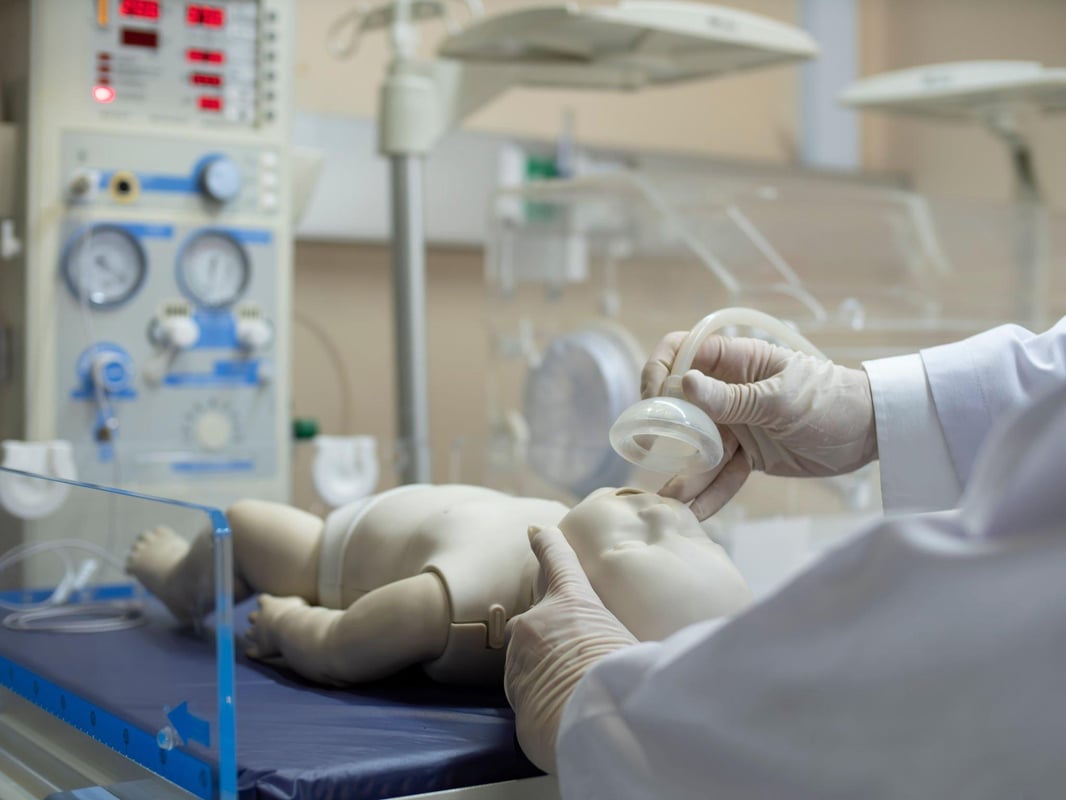$1,600 total
$276 total
$2,075 total
PALS is geared towards healthcare providers who respond to emergencies in infants and children and for personnel in emergency response, emergency medicine, intensive care and critical care units. Upon successful completion of the course, students receive a course completion card, valid for two years. Please contact your employer to ensure that you are selecting the correct course.
No cost info
$410 total
$365 total
$150 total
No cost info
$285 total
No cost info
Pursuing a career in the healthcare sector is both rewarding and fulfilling. Becoming a Pediatric Advanced Life Support (PALS) provider is a remarkable pathway to consider. The PALS certification is beneficial for healthcare professionals who respond to emergencies in infants and children, and it provides you with the knowledge and skills necessary to make a significant difference in a child's life. In this blog post, we will delve into the intricacies of PALS training, its requirements, what to look for in a class, and what to expect from the day-to-day class.

Pediatric Advanced Life Support (PALS) is a certification program for healthcare professionals responding to infant and child emergencies. These may include pediatricians, emergency room doctors, nurses, paramedics, and other healthcare providers involved in the emergency response, intensive care, or critical care units.
The PALS program centers around a systematic approach to pediatric assessment, basic life support, PALS treatment algorithms, effective resuscitation, and team dynamics. The goal is to improve the quality of care for seriously ill or injured children, resulting in improved outcomes.
To enroll in a PALS class, you must meet certain prerequisites:
You should be a healthcare provider who leads or directs resuscitative efforts to pediatric patients.
You should have a basic understanding of the PALS treatment algorithms.
A current Basic Life Support (BLS) certification is also required.
Reviewing the PALS course materials before attending the class to familiarize yourself with the course content is also advisable.
In choosing a PALS class, consider the following:
Certification: Ensure that the class offers certification upon completion. This is important as most employers require proof of certification.
Course Content: The course should cover a comprehensive range of topics, including pediatric emergencies, CPR, AED use, and more.
Qualified Instructors: The instructors should be qualified professionals experienced in pediatric advanced life support.
A typical day in a PALS class might include:
Lectures: These will cover essential theory and knowledge about pediatric advanced life support.
Hands-On Training: Practical sessions where you apply what you've learned in simulated real-life scenarios.
Assessments: Regular evaluations to gauge your understanding and proficiency.
The certification process involves:
Course Completion: Attend and complete the required hours of the PALS class.
Examination: Successfully pass the written and skills examination.
Certification: Upon passing the exams, you'll receive your PALS certification.
Upon obtaining your PALS certification, you may explore job opportunities in various healthcare settings - hospitals, emergency medical services, intensive care units, and pediatric departments. Networking, online job platforms, and healthcare job fairs can be excellent resources for job hunting.
After obtaining your PALS certification, you may want to expand your skills and knowledge by taking additional courses. These might include:
Advanced Cardiac Life Support (ACLS): This course is designed for healthcare professionals who manage cardiopulmonary arrest or other cardiovascular emergencies.
Neonatal Resuscitation Program (NRP): This program is designed for healthcare providers involved in delivering and caring for newborns.
Aside from PALS certification, there are other career paths in healthcare that you might want to consider. For instance, becoming a Certified Medication Aide or a Medical Administrative Assistant can offer you more opportunities to make a difference in the medical field.
When choosing a training center for your PALS class, it's crucial to consider factors such as the instructors' qualifications, the curriculum, and the center's reputation.
PALS certification is not just a document but a testament to your dedication and commitment to saving children's lives. It equips you with the knowledge and skills to handle pediatric emergencies effectively.
Pursuing a PALS certification is a worthy investment of time and effort if you're a healthcare professional dealing with pediatric patients. It enhances your skills and knowledge and significantly contributes to your professional growth. If you're searching for PALS classes near you in Dallas/Fort Worth, consider the above factors to ensure you get the most out of your training. For more insights and resources on vocational training programs, visit the Dreambound blog.
If you're exploring options in this field in various locations, Dreambound's extensive guides are a great resource. We've got detailed insights for numerous cities. check out some additional guides below:
Thinking about a potential career transition? Dreambound offers detailed guides to help you with making an informed decision. Dive in below:
Dreambound's platform allows prospective students to find the right educational program for them through searching, filtering, and connecting with our extensive selection of career & technical education partners.
Dreambound has over 70 programs across healthcare, technology, business, and industrial trades. This includes programs such as Medical Billing, Cybersecurity, and welding.
Some of our schools offer financial aid for those who qualify. Many others offer payment plans, where you can pay the cost of class over time.
Yes, Dreambound offers many online programs. On Dreambound's search, you can filter by online, in-person, and hybrid (part online, part in-person).
Dreambound is completely free for you to use! We are supported by schools and organizations who pay to advertise on our website, so we can offer all of our career resources for free.